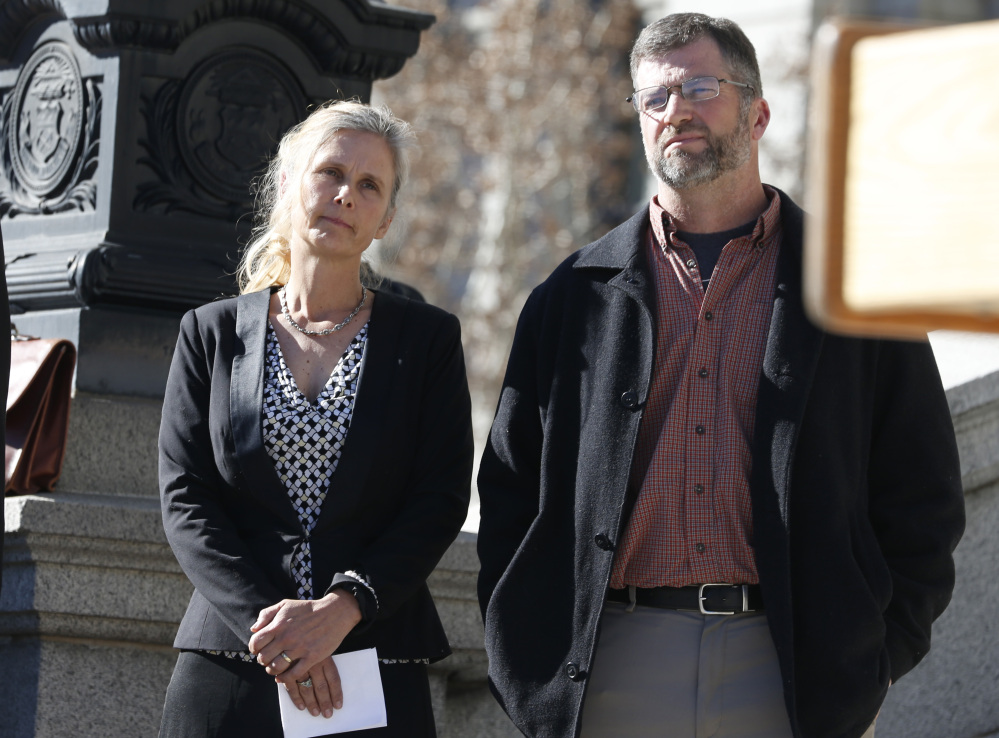DENVER — Colorado already is being sued by two neighboring states for legalizing marijuana. Now, the state faces groundbreaking lawsuits from its own residents, who are asking a federal judge to order the new recreational industry to close.
The owners of a mountain hotel and a southern Colorado horse farm argue in a pair of lawsuits filed Thursday in U.S. District Court in Denver that the 2012 marijuana-legalization measure has hurt their property and that the marijuana industry is stinky and attracts unsavory visitors.
The lawsuits are the first in a state that has legalized recreational or medical marijuana in which its own residents are appealing to the federal government to block pot laws.
“It is a bedrock principle of the United States Constitution that federal law is the supreme law of the land,” said David Thompson, a lawyer representing the plaintiffs.
The lawsuits are also the first to claim that federal racketeering laws allow them to win damages from pot businesses that flout federal law. The plaintiffs have not specified amounts they would seek.
Experts say the racketeering approach is a new one.
“If these lawsuits are successful, it could be devastating for the industry,” said Sam Kamin, a University of Denver law professor who helped craft Colorado’s pot regulations. “But it will be very difficult for the plaintiffs to prove damages directly attributable to the marijuana industry.”
Colorado Attorney General Cynthia Coffman released a statement saying she would “defend the state’s marijuana laws and our clients” if the lawsuits go to trial.
Marijuana legalization supporters say states are free to stop enforcing certain drug laws, as long as they don’t try to overrule the federal Controlled Substances Act.
One legalization backer, Democratic state Rep. Jonathan Singer, said the pot industry has boosted tax budgets and hurt the black market.
“The sky hasn’t fallen. We’re doing the right thing,” Singer said.
Technically, federal law making pot illegal for any purpose remains in effect in the 23 states that have authorized its use for people with certain medical conditions. However, it’s not clear how far the federal government can go to compel states to enforce drug laws.
For nearly 20 years, the U.S. Department of Justice has said marijuana is illegal and that the federal government can enforce even small-possession crimes. However, U.S. authorities have left most enforcement to the states, saying they focus on larger drug crimes.
One of the lawsuits came from the owner of a Pueblo County horse farm, Hope Reilly, who said Thursday that she’s “been horrified” to see a marijuana cultivation facility go up next door.
“This land means a great deal to me,” said Reilly, who says the pot facility mars “spectacular views” of the Rocky Mountains.
Also suing is the owner of a Holiday Inn, who argues that a pot shop opening nearby is keeping away families.
Send questions/comments to the editors.



Success. Please wait for the page to reload. If the page does not reload within 5 seconds, please refresh the page.
Enter your email and password to access comments.
Hi, to comment on stories you must . This profile is in addition to your subscription and website login.
Already have a commenting profile? .
Invalid username/password.
Please check your email to confirm and complete your registration.
Only subscribers are eligible to post comments. Please subscribe or login first for digital access. Here’s why.
Use the form below to reset your password. When you've submitted your account email, we will send an email with a reset code.